Windsor Frontline Health Care
Workers Find a Safe Haven on Facebook
Story by Matthew St. Amand
Photography by John Liviero
“It is better to light a candle than to curse the darkness.” That simple, profound statement has been alternately attributed to Eleanor Roosevelt, Confucius, and Charles Schulz. Without even knowing, Windsor-Essex County Lab Technician, Tanya Hughes, embodied that wisdom when she created the “Windsor Frontline Health Care Workers” Facebook page, which has become a bona fide sensation online.
There’s no sugar coating it—the day Tanya created the page had been pretty terrible.
“It was just after Christmas,” she recalls. “It had been a long, exhausting holiday, juggling family and work.”
In ordinary times, Tanya’s job was fairly routine—visiting private residences and long term care homes, drawing blood from people who needed blood tests, but, for various reasons, could not travel to a facility to have that done. In the time of the COVID-19 pandemic, the job has taken on dire, science fiction dimensions: dwelling among countless COVID-positive patients, witnessing
the ravages of the virus at close range. For the protection of their patients, and to protect themselves, lab techs “gown-up”—don their PPE—each time they see a patient. Tanya will do this
anywhere between 20 and 60 times a day.

“You wouldn’t believe how exhausting that is,” she says. In the current Gray status lockdown, her workload has exploded.
“I had gone into a long term care home that day,” Tanya continues. “So many people had tested positive for the coronavirus and they were so sick. The reality of the situation really hit me, watching the health care staff trying to keep a handle on it all, gowning-up, over and over.
Trying to be quick, trying to be careful. Everybody was pulled in a dozen different directions.”
It was a long drive home from East Windsor to LaSalle that evening for the 38 year old mother of one.
“I cried all the way home,” Tanya says. “I couldn’t stay bedside and help the patients. I wished there was more I could do. But rather than giving up or breaking, I thought, ‘Maybe if I created this
Facebook page, where friends in health care could share their stories and support each other.’”
She created the page.
“In the first hour, I had a hundred requests to join,” Tanya says.
A few hours later, the number grew to 500. By the end of that first night, there were 1,000 requests to join. Within 10 days of its inception, the “Windsor Frontline Health Care Workers” Facebook page has more than 6,000 members.
Nobody is more surprised by its success than Tanya.
“I’m honestly speechless about it,” she says. “It’s been a truly humbling experience. I am so proud of the health care workers, showing love and supporting one another.”
Tanya is quick to point out that she has help running the page.
“I have a great admin team—just good friends of mine: Cait Desmarais, Shannon Strickland, Danielle Dunn, Aaron Broughton, John Chan, Atum Pillar, Jim Slicky, and Ben H. I could not have done it without them. The dedication of frontline health care workers needs to be recognized.”
Tanya’s employer is supportive of the Facebook page.
“They’re very happy,” she says. “They couldn’t believe what I was able to do.”
Although users must request access, the Facebook page is open to the public. Members, however, are asked to keep it respectful.
One reason for the page’s instantaneous popularity is that there are few havens for health care workers online. Social media is saturated with opinions of all stripes, and although the numbers don’t lie, there is a disheartening population of users who seem impervious to the scientific facts of the coronavirus.
Also, pandemic fatigue is widespread. The world at large is done with COVID-19, but it does not appear to be done with us.
In the first months of the pandemic, frontline workers were recognized as heroes. It seems, however, that there is a shelf-life to acclaim and admiration, and the pandemic has outlasted that timespan.
The conversations on the “Windsor Frontline Health Care Workers” Facebook page vary widely from the stressed-out, to the light-hearted, and comical. Many members post art they have either created or found inspiring. Most health care workers post images of themselves in their full PPE, like battle dress. One discussion, asking which brand of running shoes is best for long shifts, had dozens of replies. At last count, Saucony shoes were the most highly recommended.
Many other posts are inspirational.
A nurse recently posted: “Somebody asked: ‘You’re a nurse?!? That’s cool, I wanted to do that when I was a kid. How much do you make?’ The nurse replied… I can make holding your hand seem like the most important thing in the world when you’re scared. I can make your child breathe when they stop…?’”
“Yesterday, someone commented ‘I’m having a bad day’,” Tanya says, “and immediately people were replying and supporting this person.”
Given the enormous popularity of the “Windsor Frontline Health Care Workers” Facebook page, does Tanya have any plans for its future?
“Not really,” she says. “I just hope it brings more awareness. The success shows that we need to redefine ‘health care exhaustion’. We have to be there for our health care professionals who are suffering.”
Going forward, she hopes the page will continue to be a haven, as well as a guide and resource.
“We found beauty in the chaos,” Tanya notes. “I really believe that 2021 will be the year of healing. We’ll get the city on its feet again.”
What can ordinary citizens do to support health care workers?
“Just be kind,” Tanya says. “Be vigilant. Stay home. If you have to go out, wear a mask. Remain positive. Be mindful. For everyone’s mental health. Eventually we will get through this.”
One tangible light at the end of the tunnel is the vaccine roll-out. According to Bloomberg.com, January 14: “The biggest vaccination campaign in history has begun. More than 35 million doses in 49 countries have been administered.”
Some news needs to be taken with a grain of salt. Omnicalculator.com has a “Vaccine Queue Calculator for Canada”. When the writer of this story entered his data, this was the result: “Based on your profile, you could be in Stage 3 of the national guidelines for the COVID vaccine rollout.
There are between 11,704,258 and 22,456,373 people in front of you in the queue for a COVID vaccine across Canada.”
Tanya received the first of two shots a few days ago. “The side effects were minimal,” she says. “Just a sore arm for a little while.”
Tanya joined the profession when she was 24 years old. “I became a health care professional because I wanted to help people.” She has certainly done that—in ways she is still struggling to understand.
For the moment, our health care professionals soldier on, trying to keep step with the pandemic. They are making tremendous use of this new outlet to support one another. They are finding what people have known since time immemorial: there is safety in numbers.


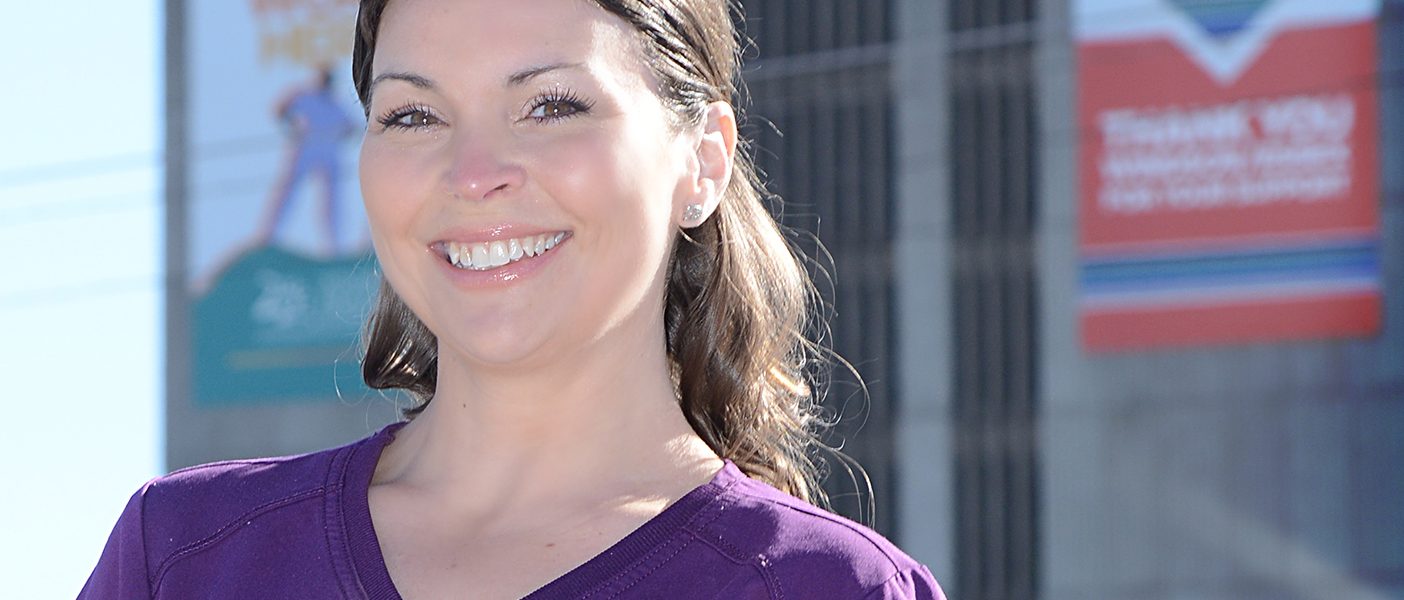

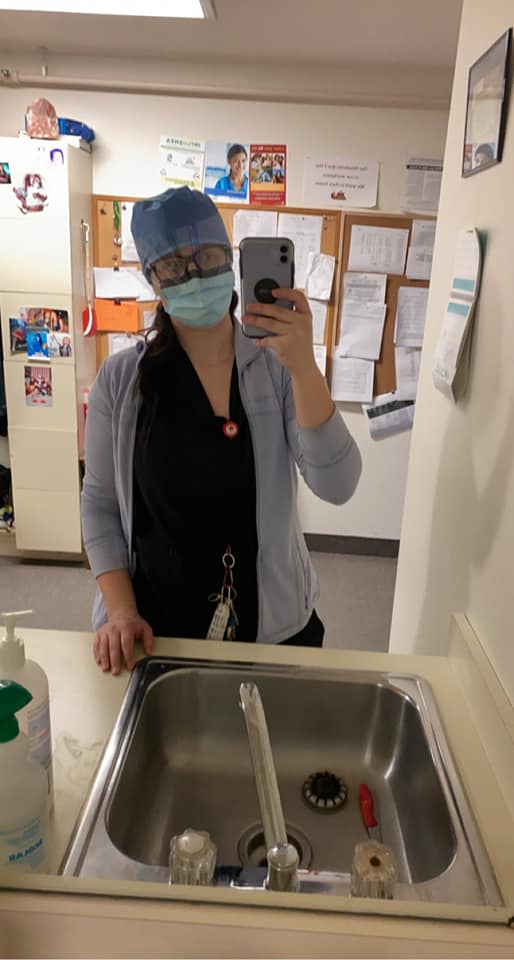
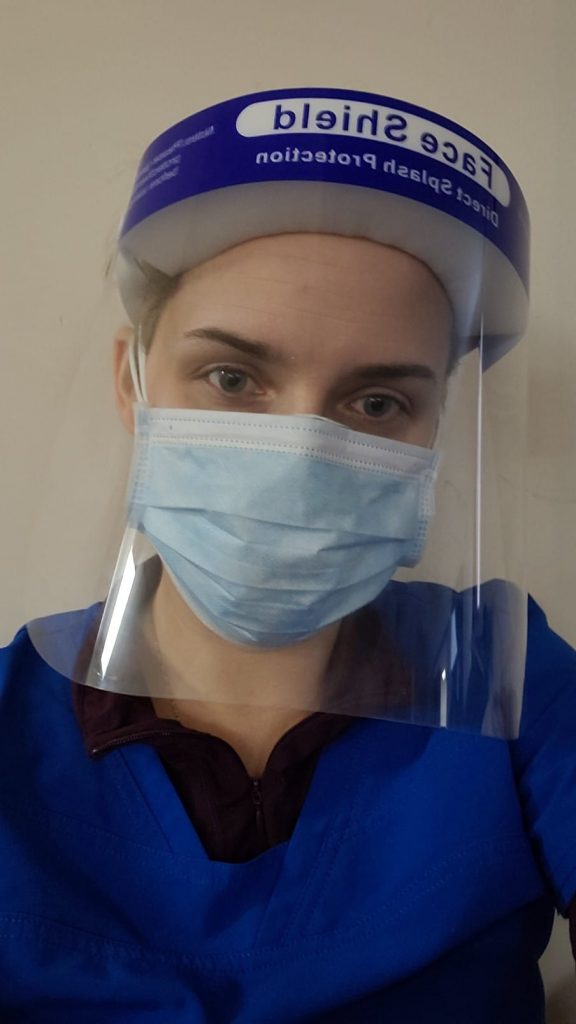
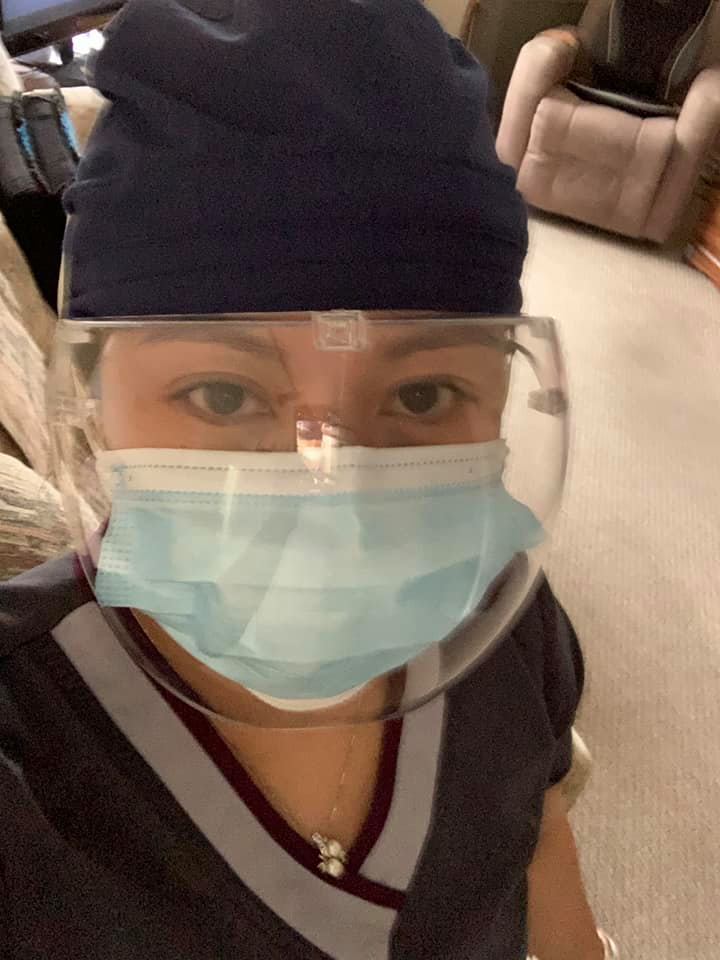
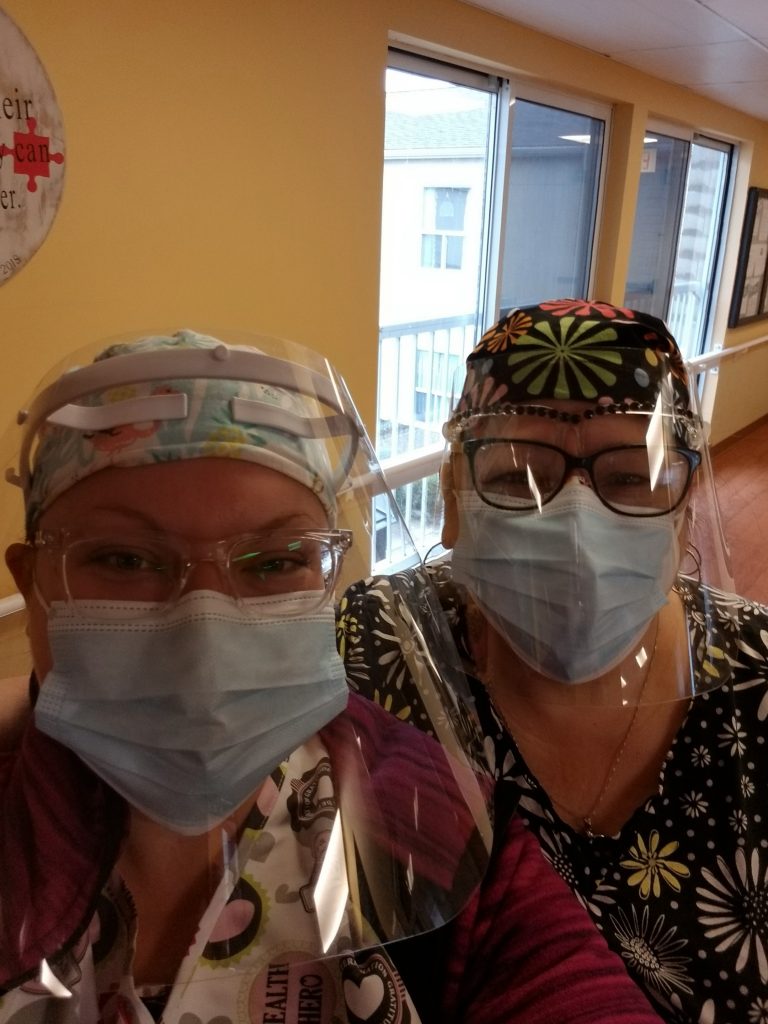
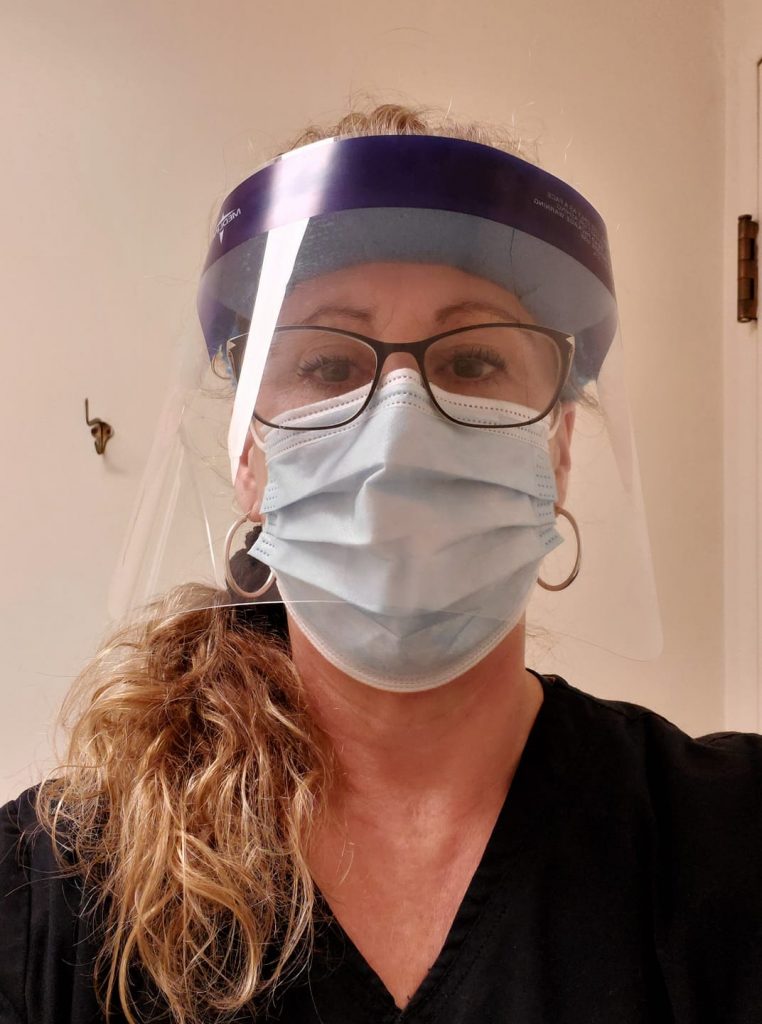

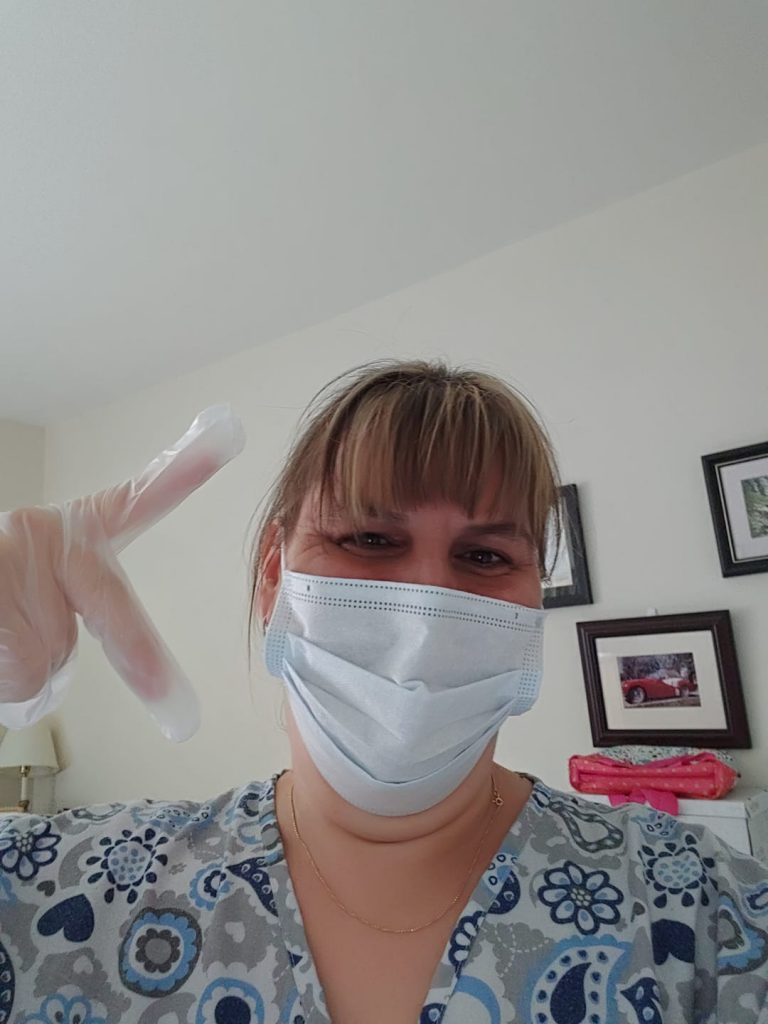

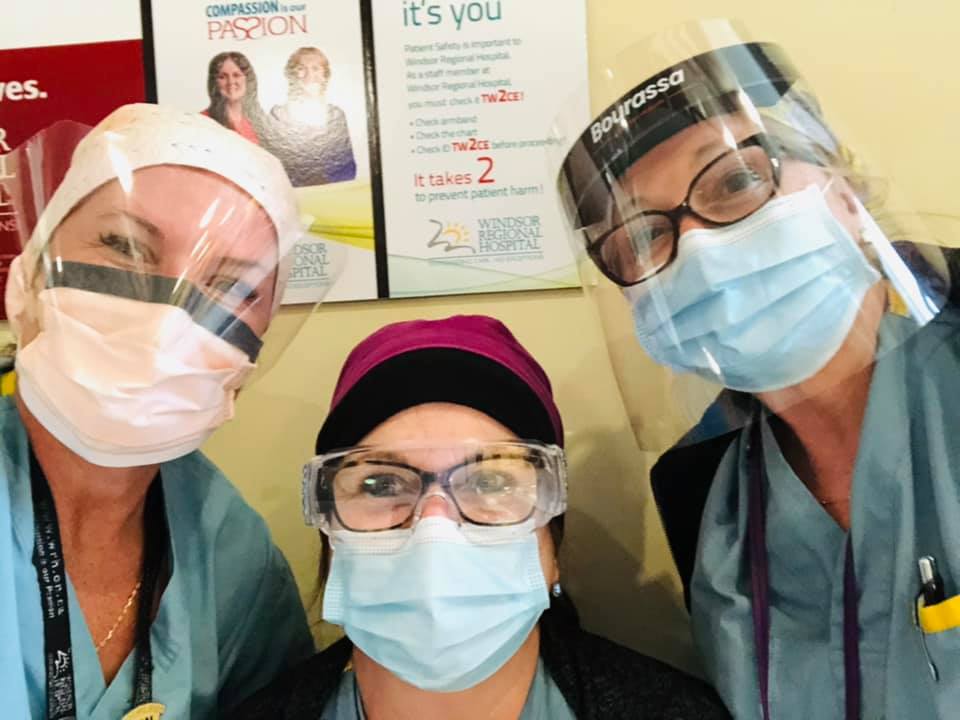
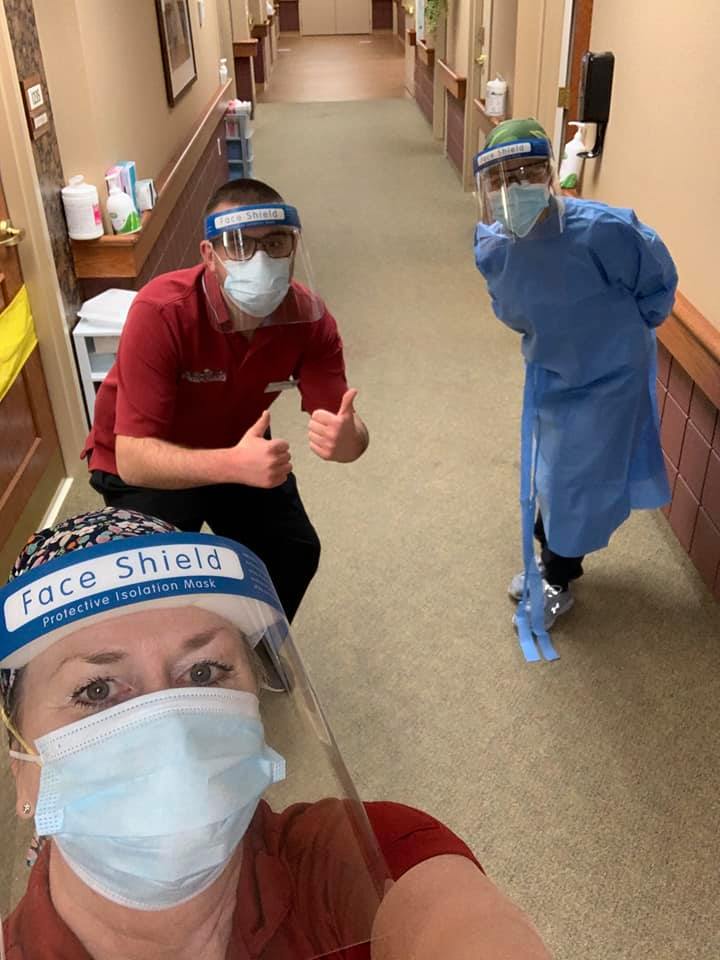
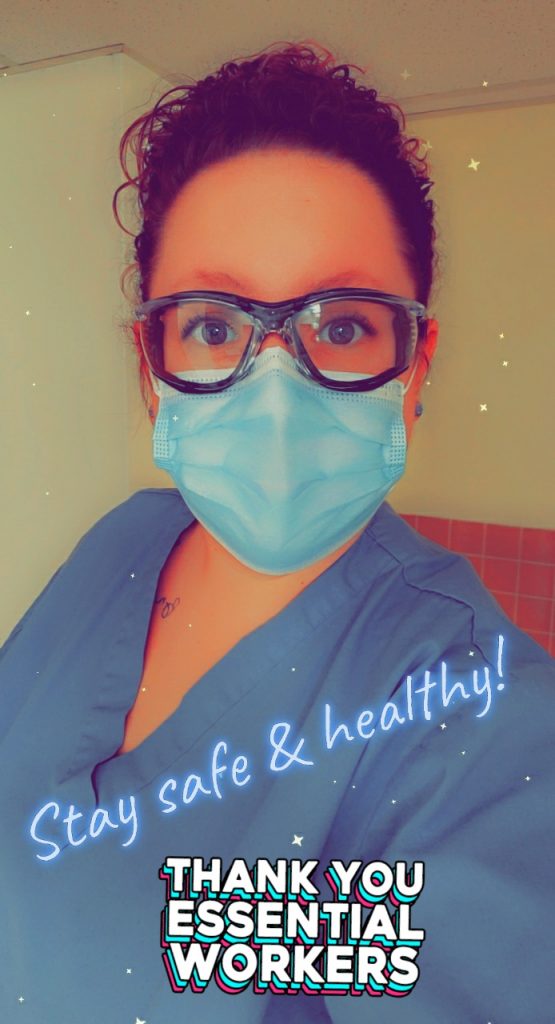
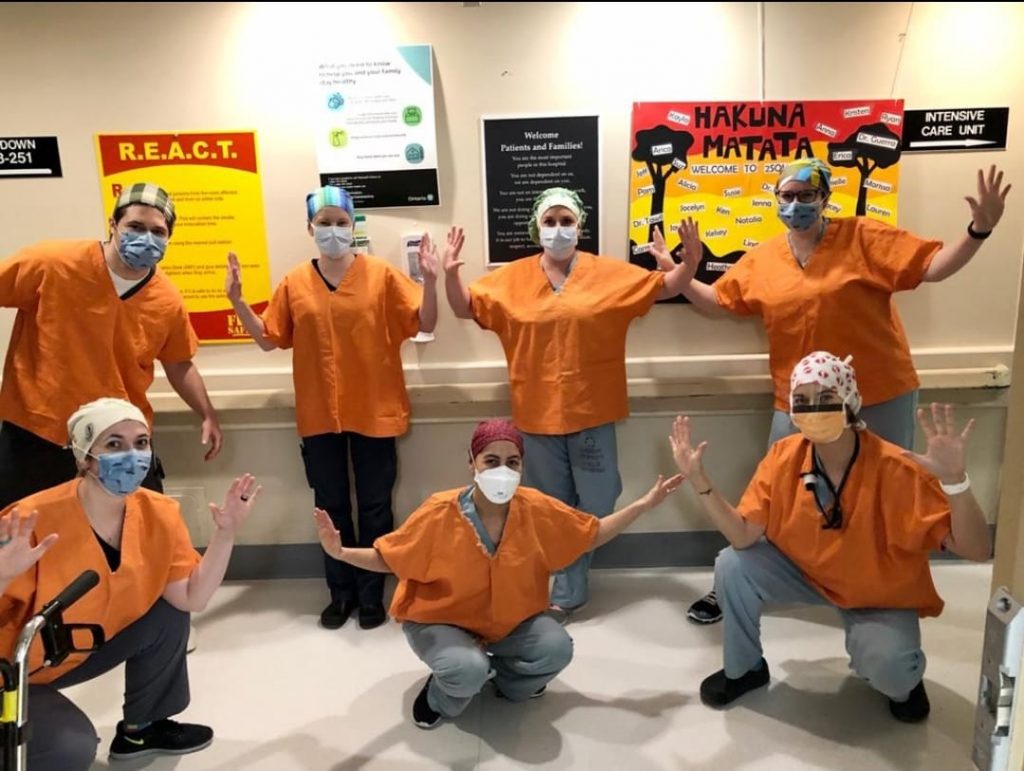
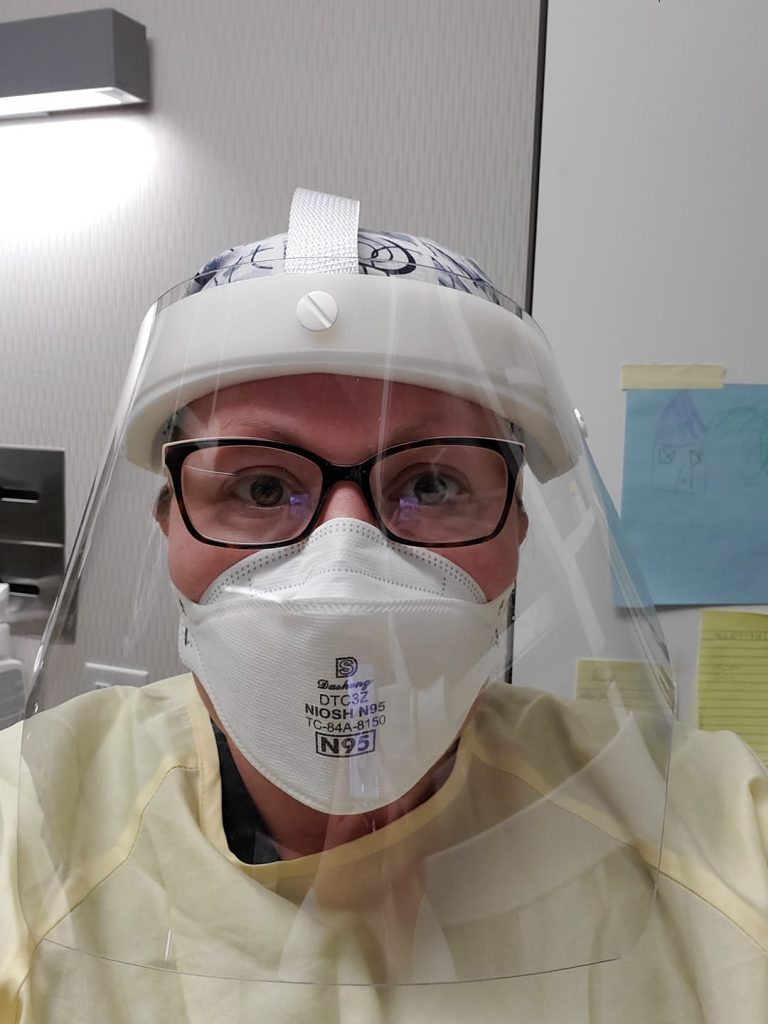


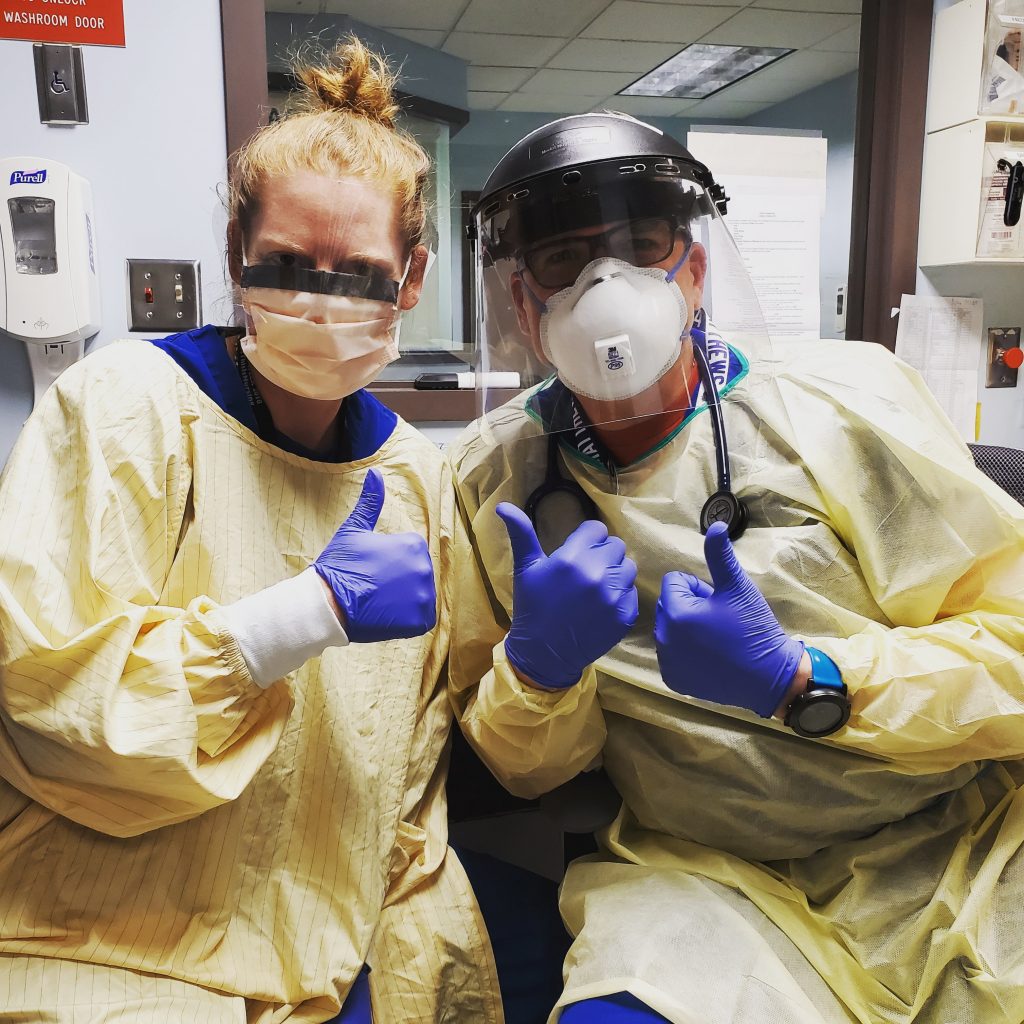
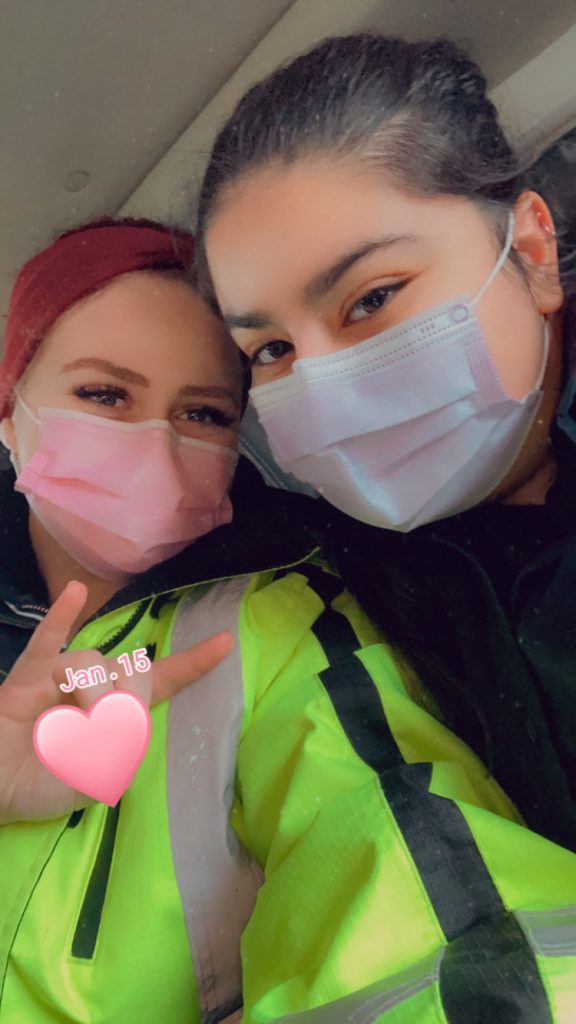
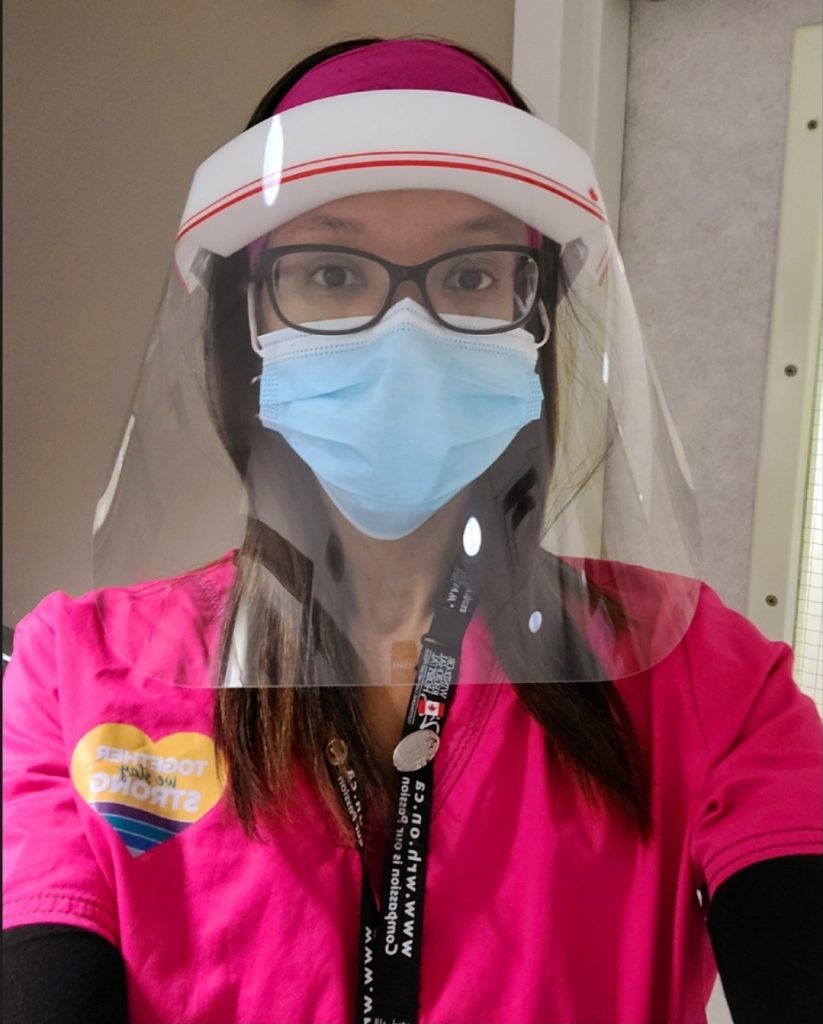
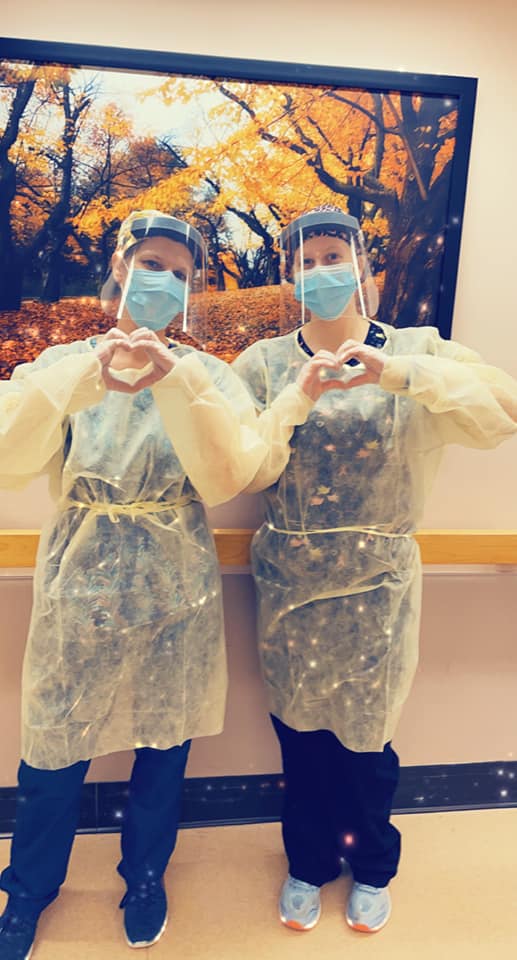
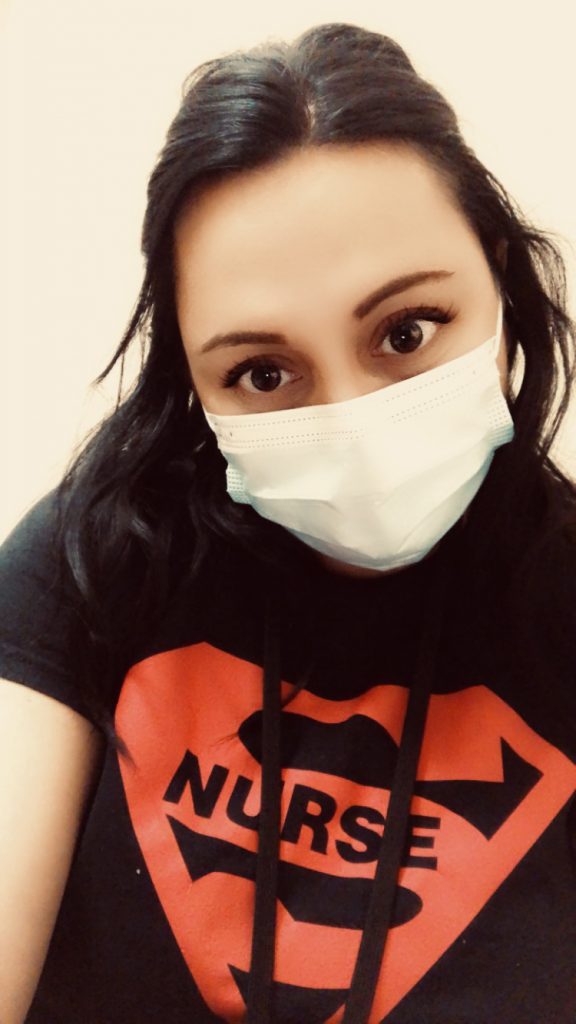
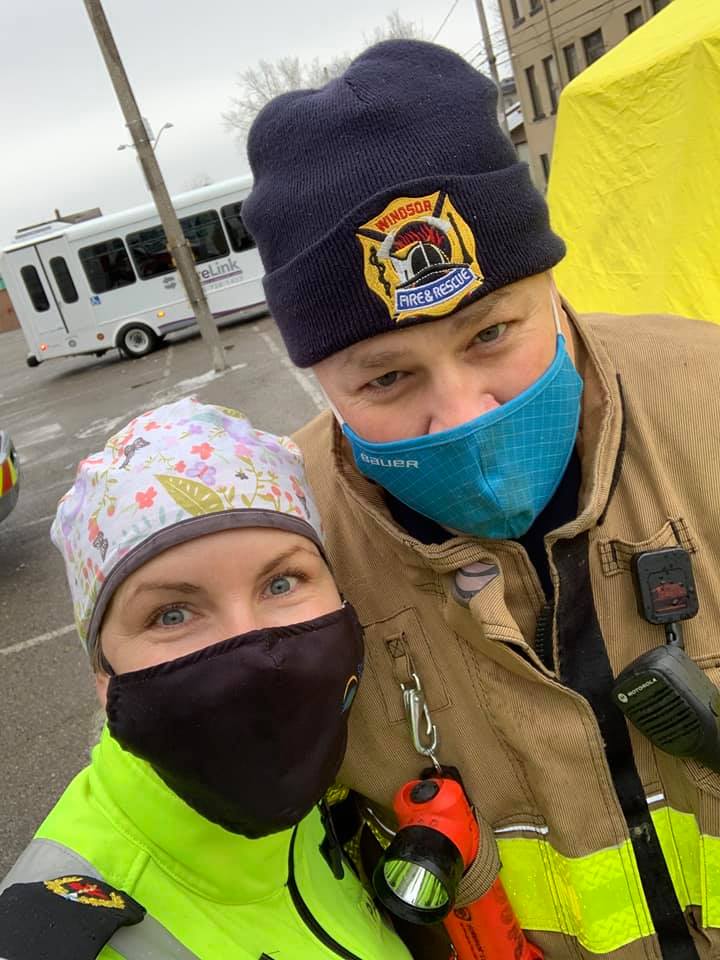
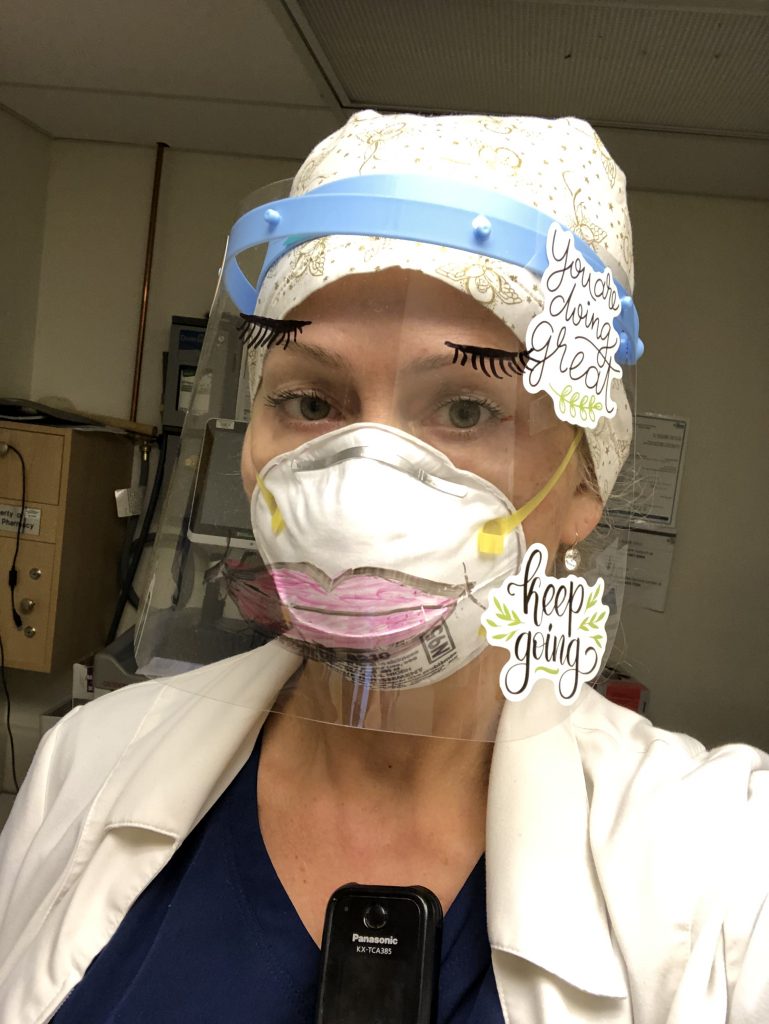


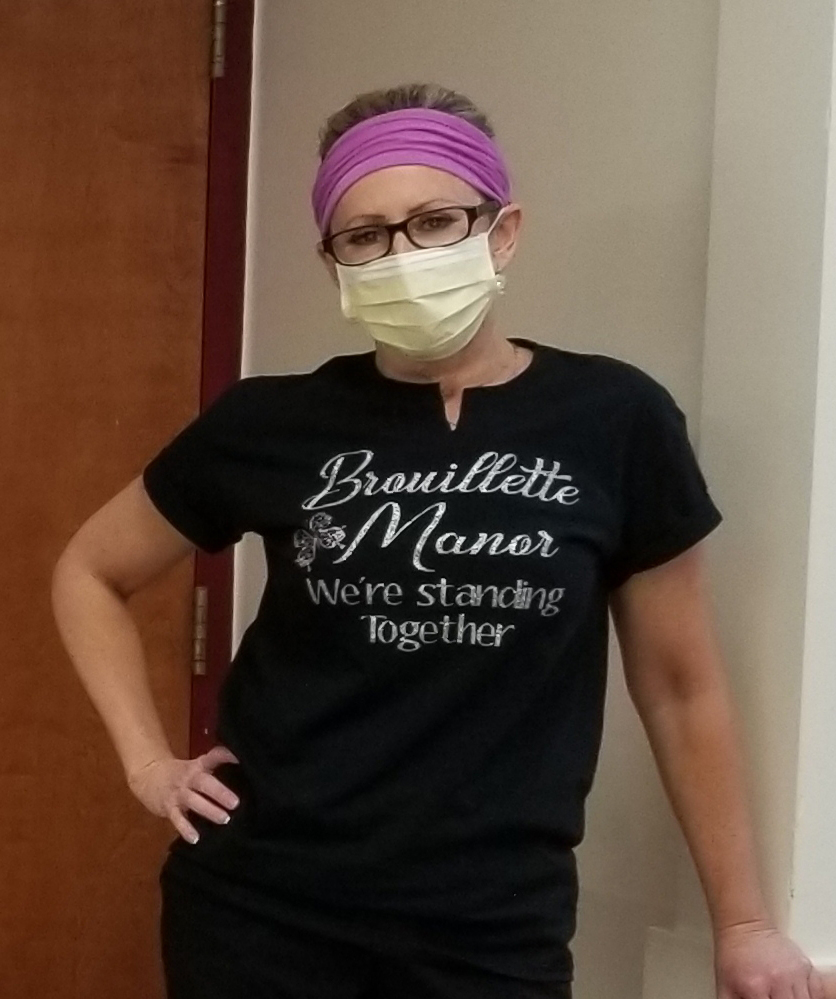
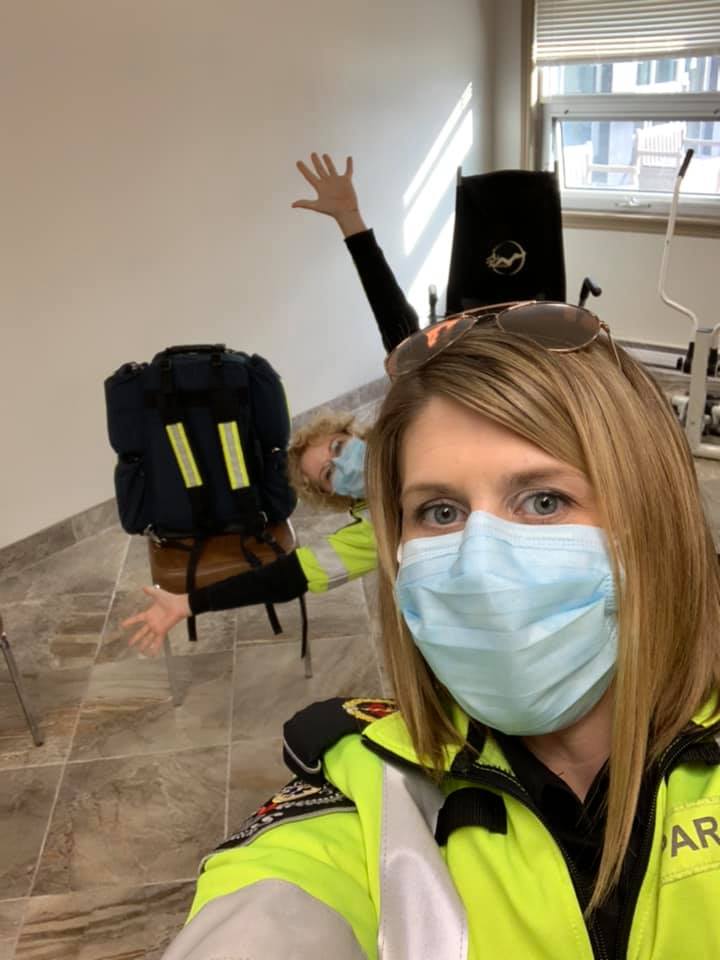
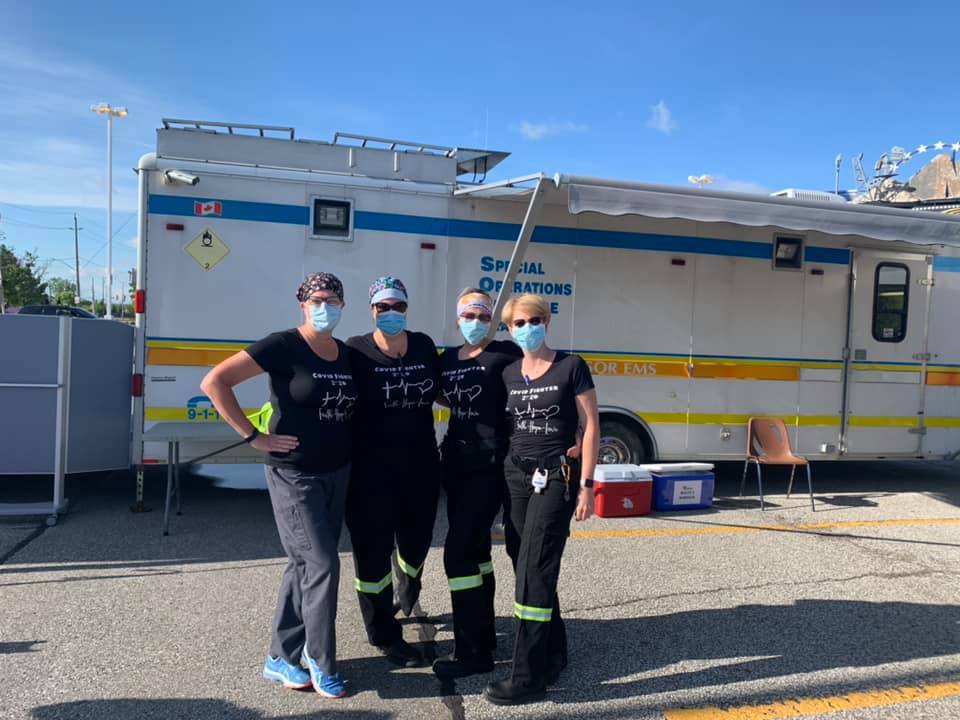

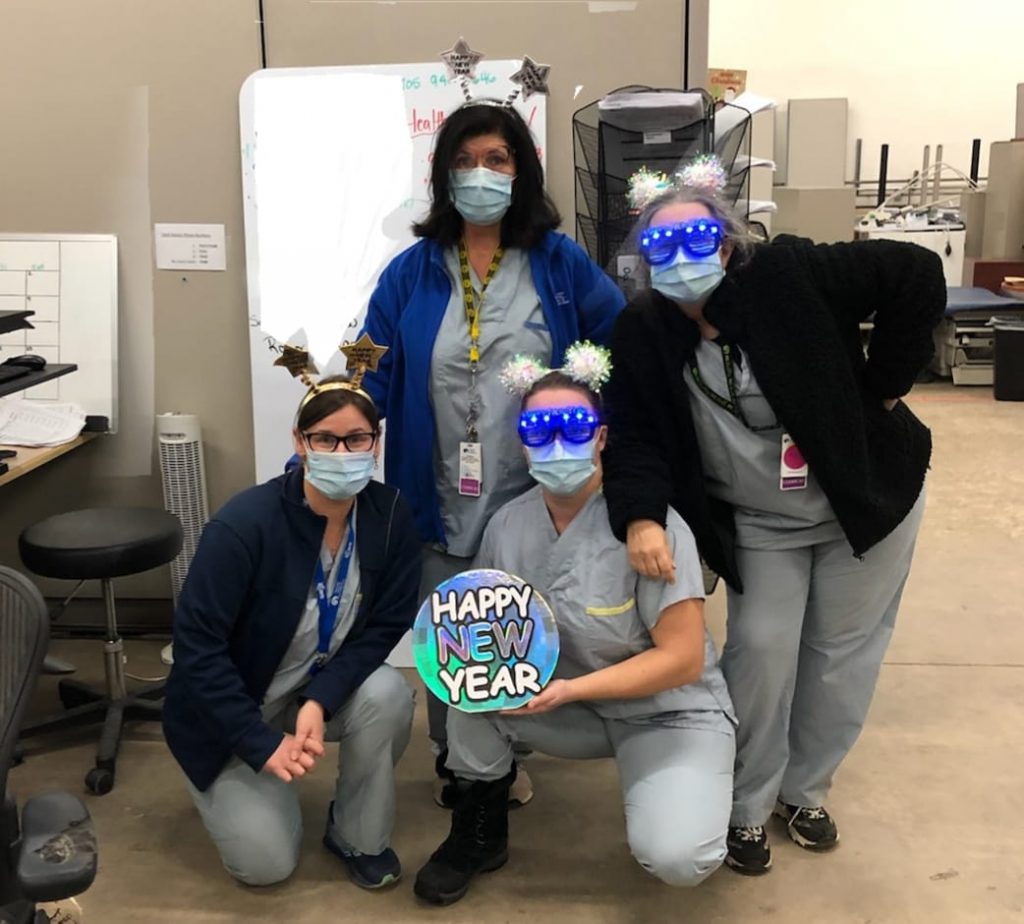
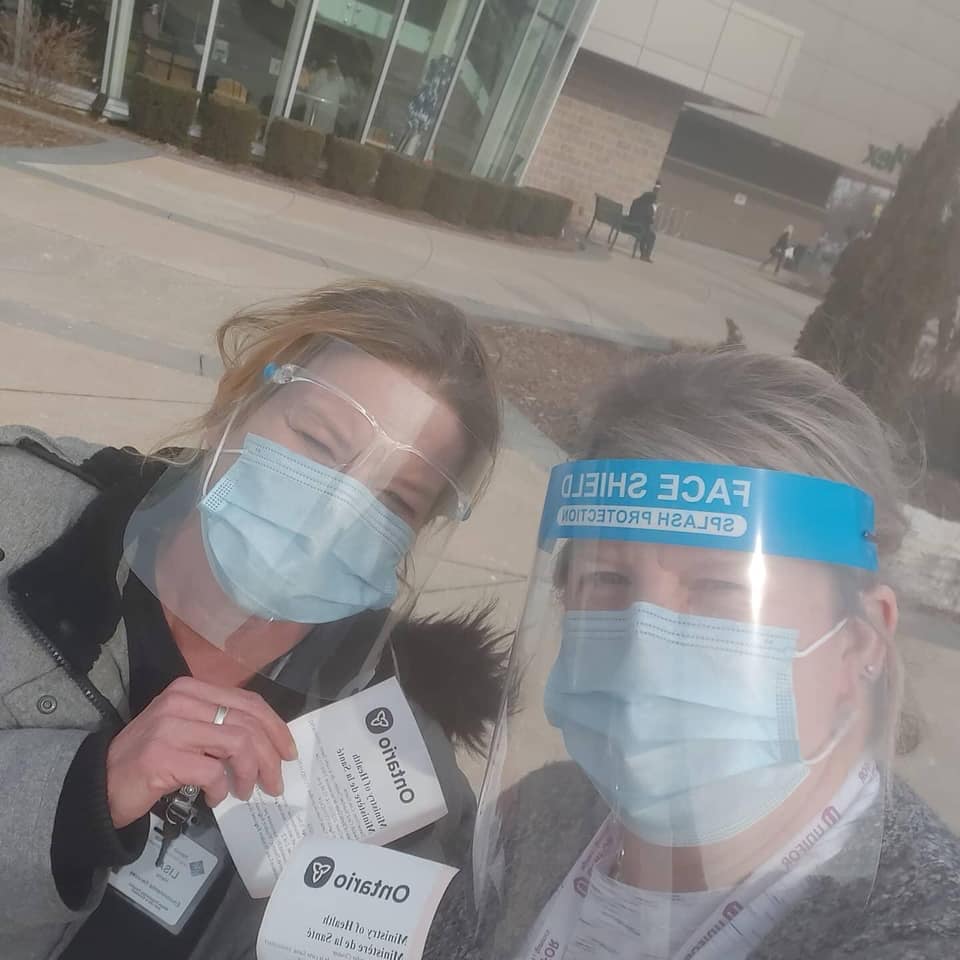
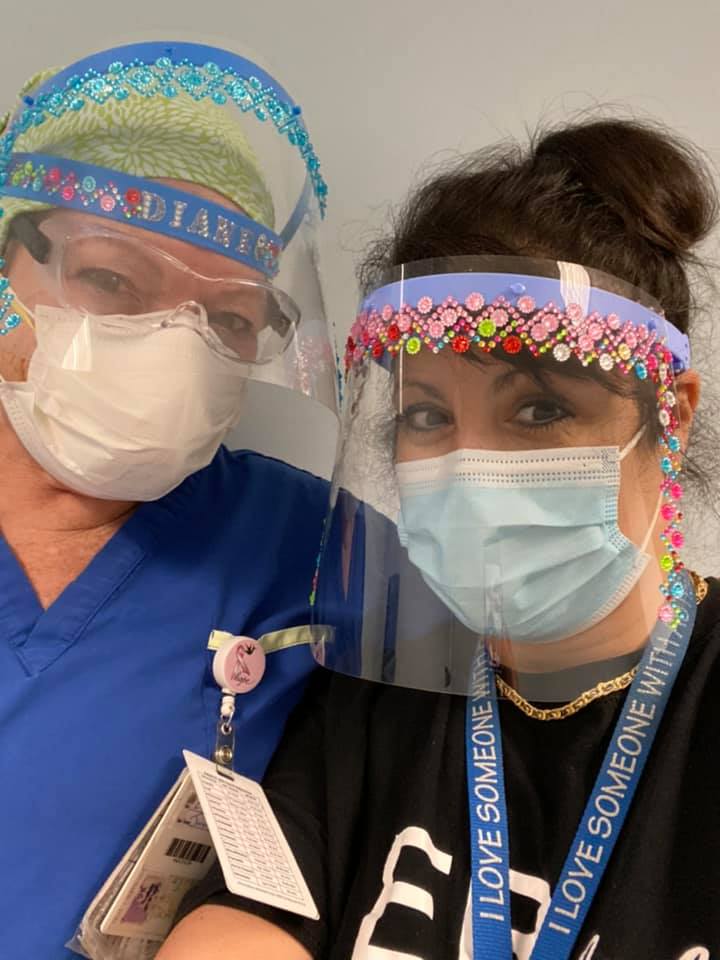
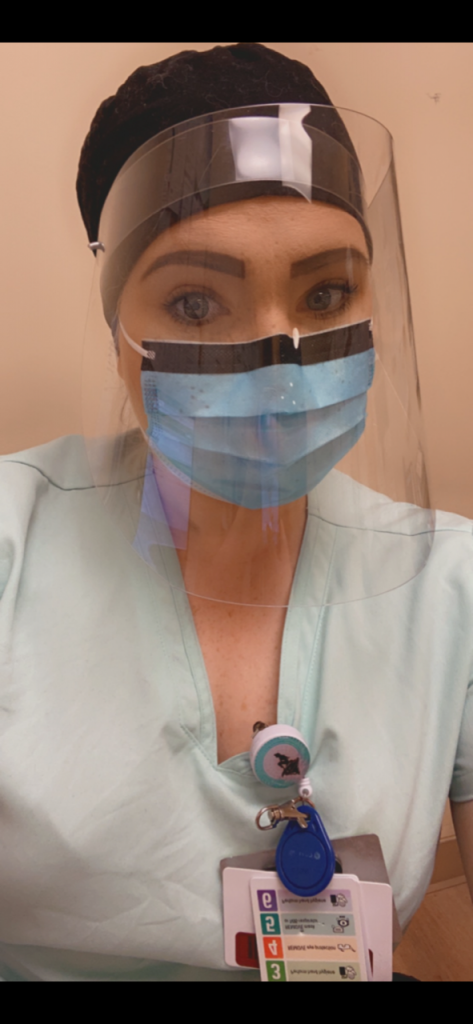
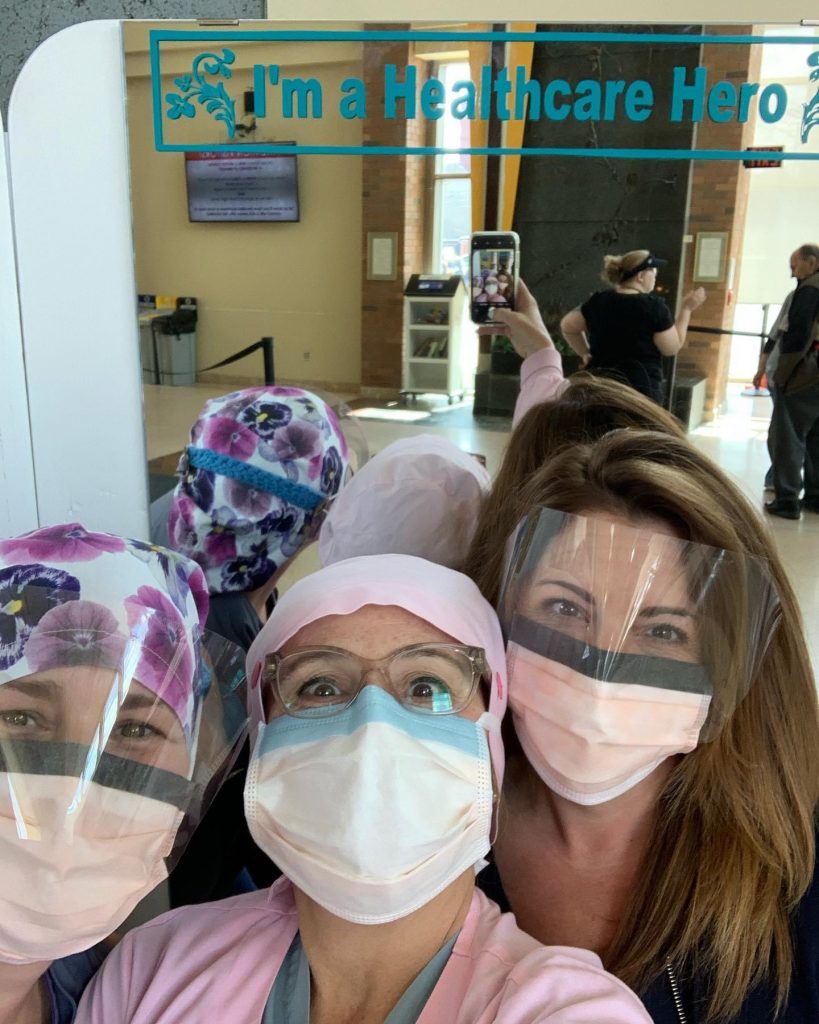
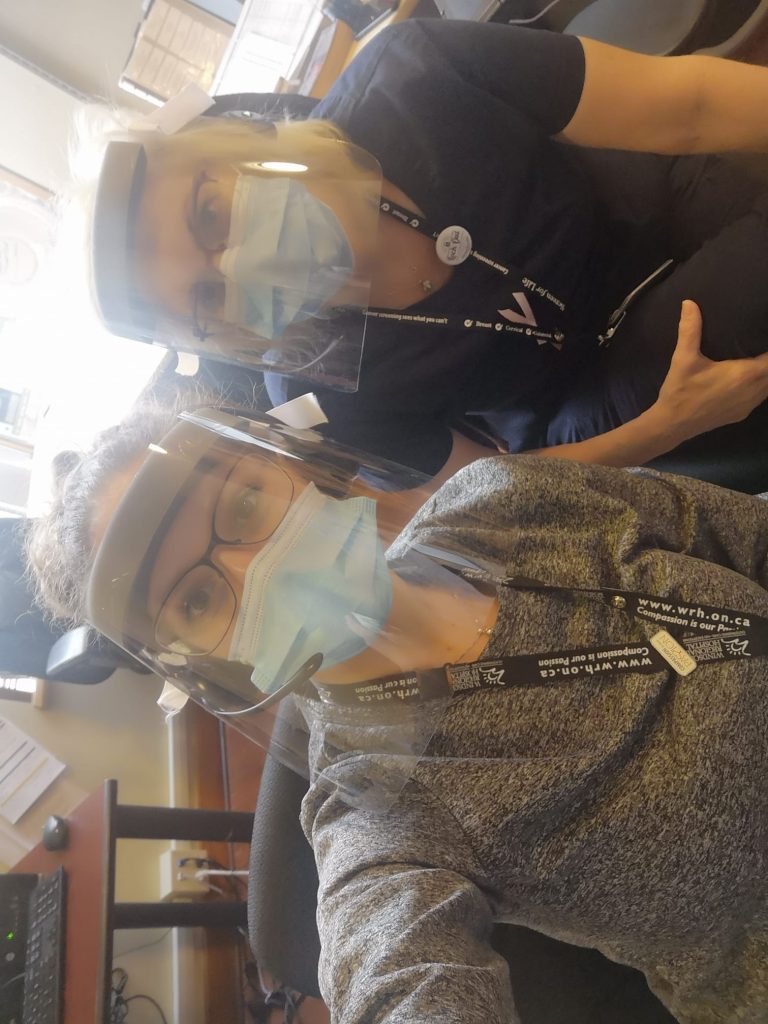
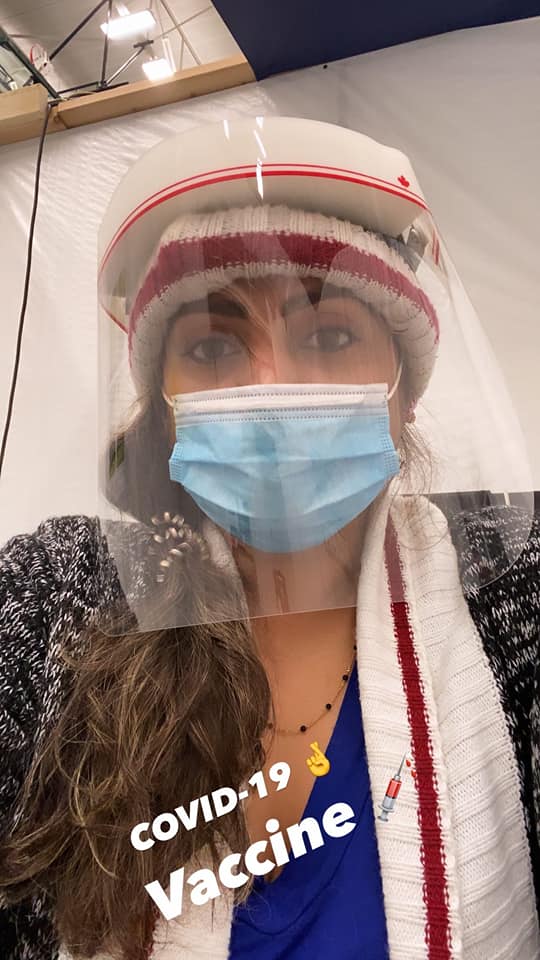
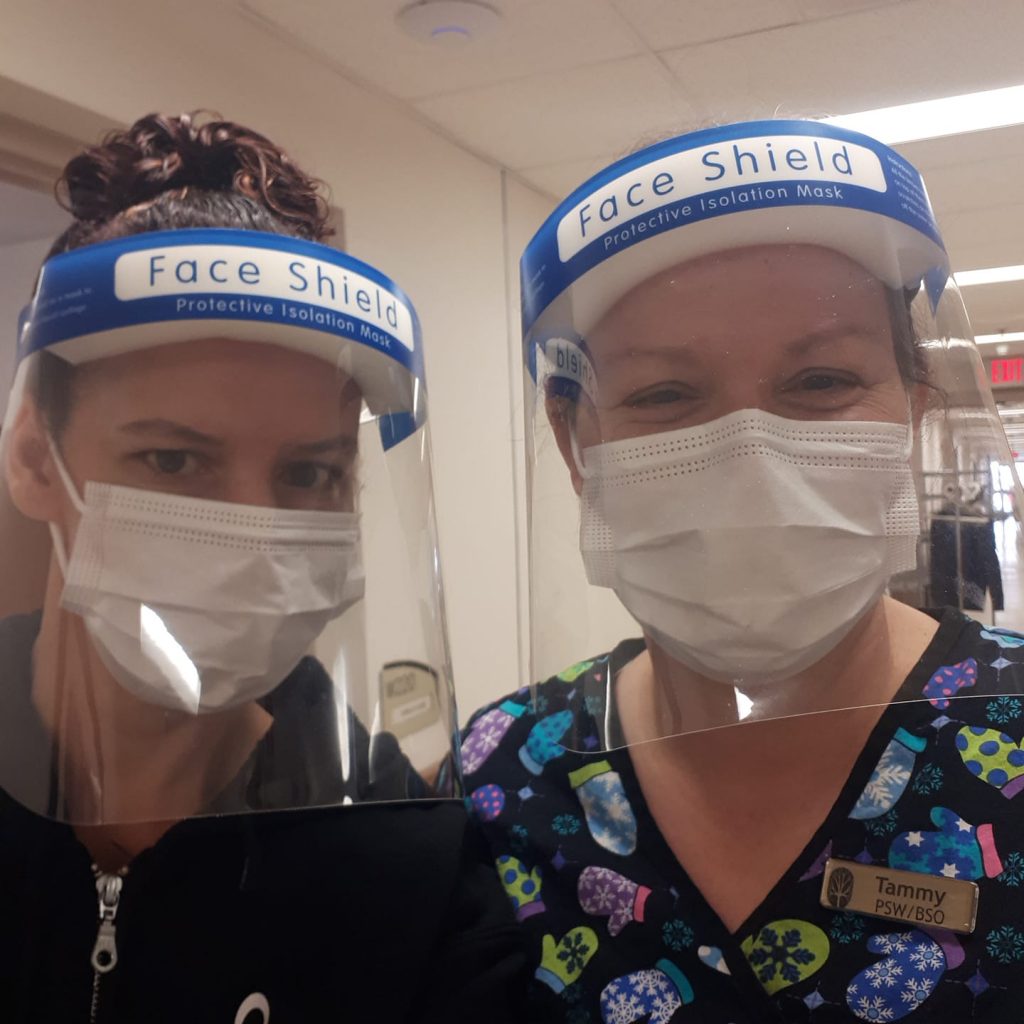
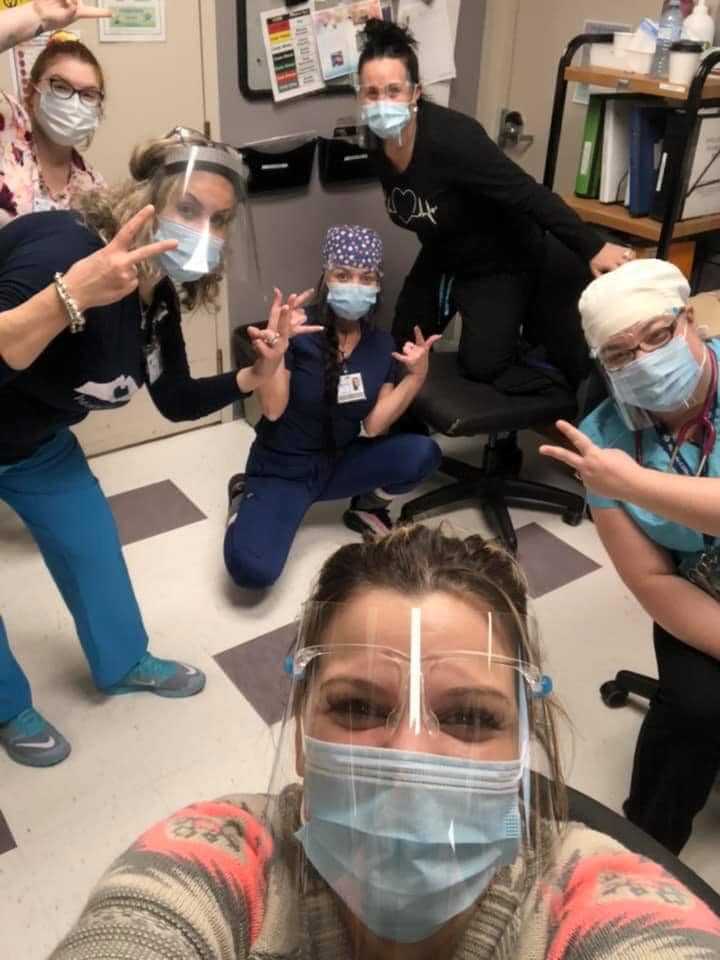
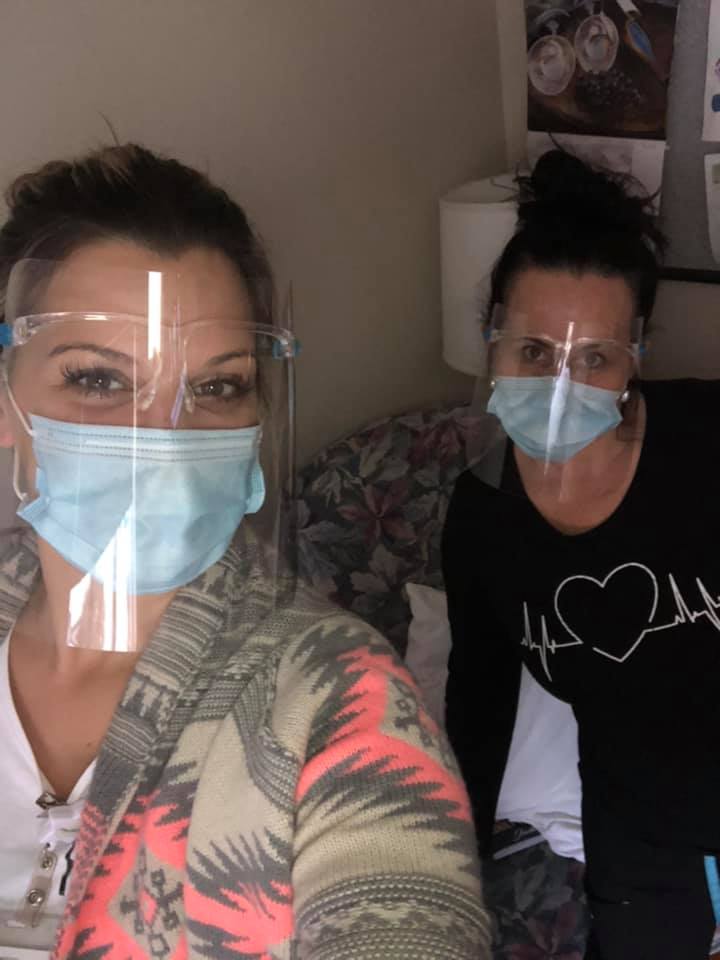
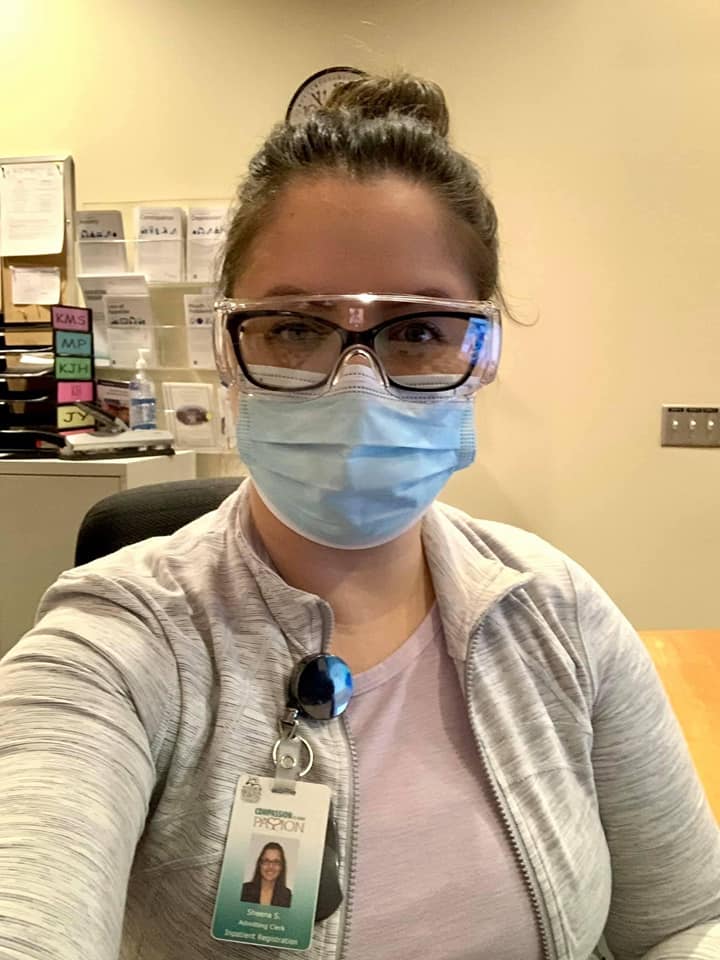
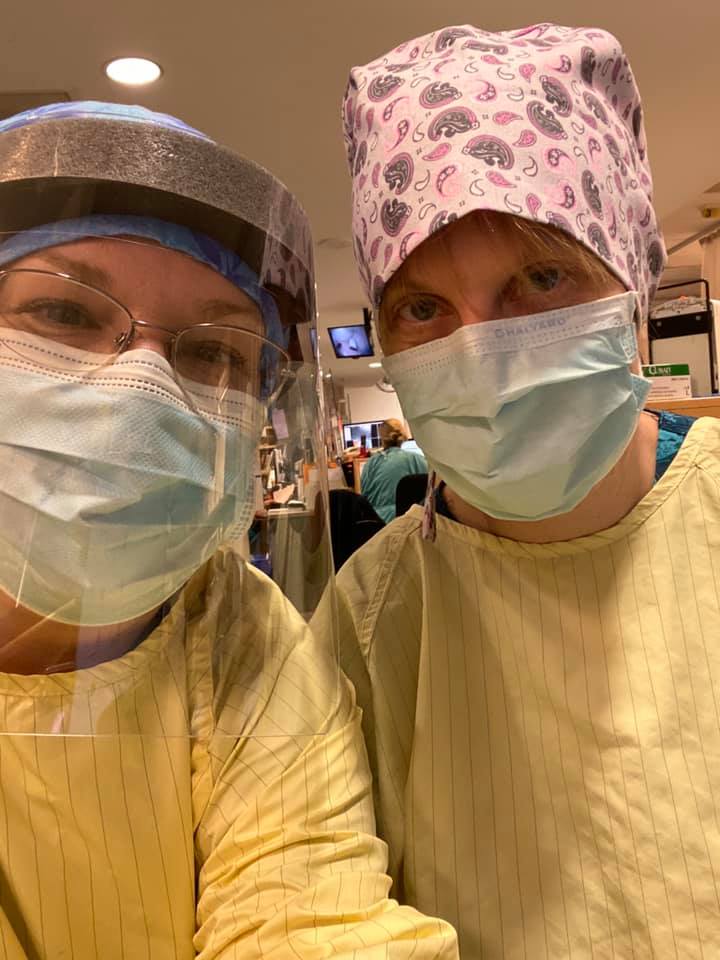

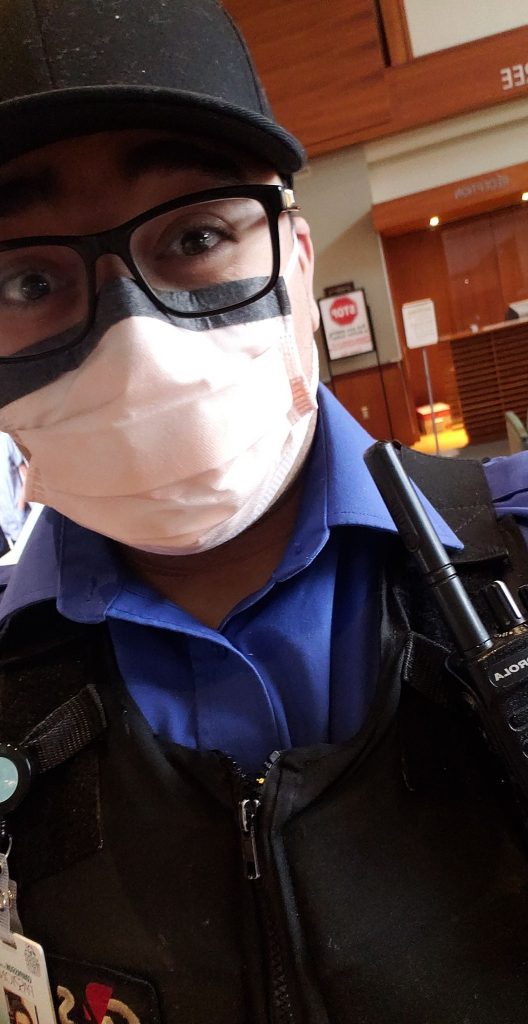
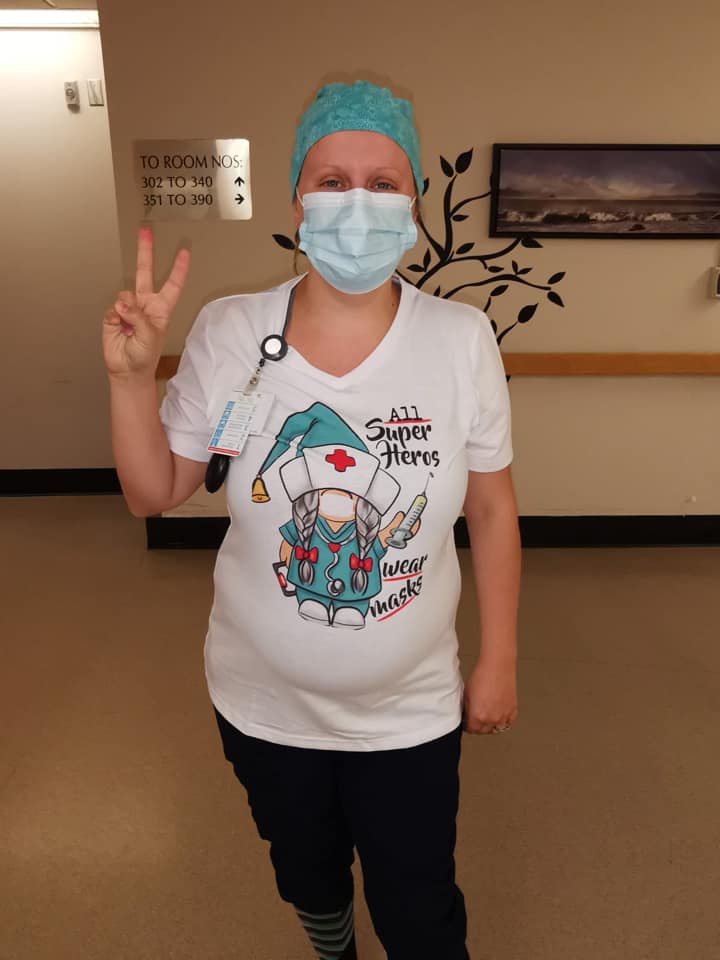
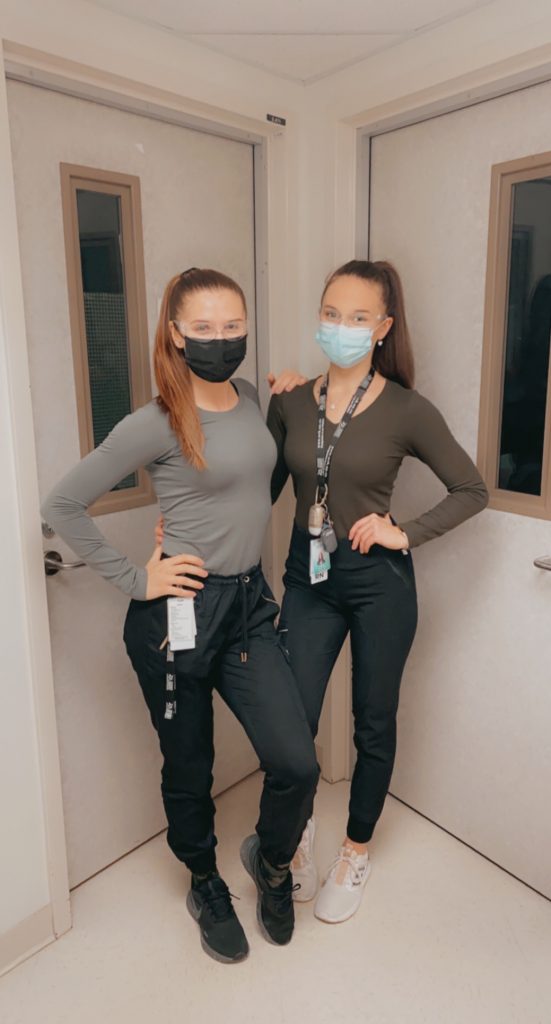

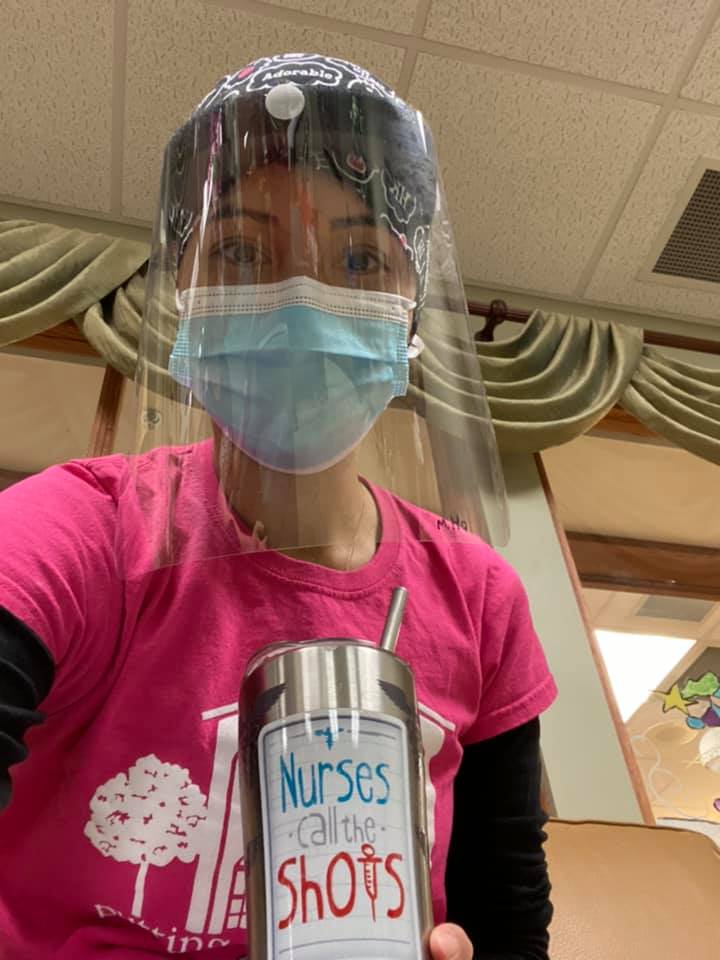
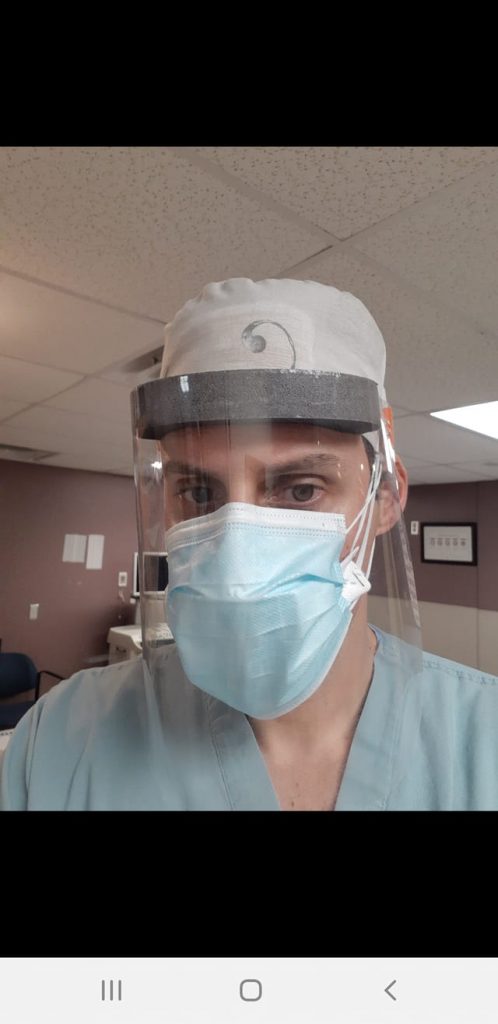
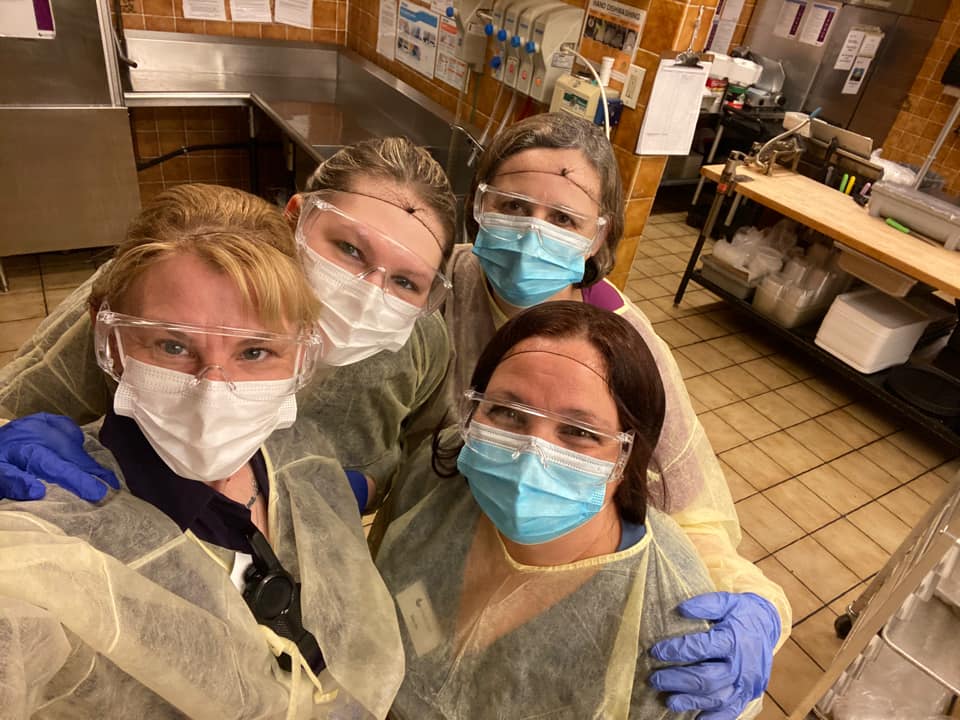

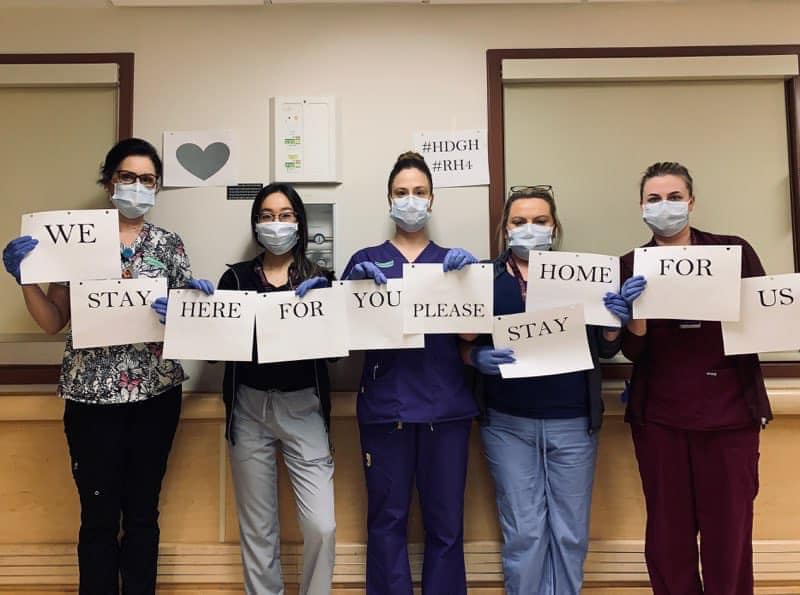
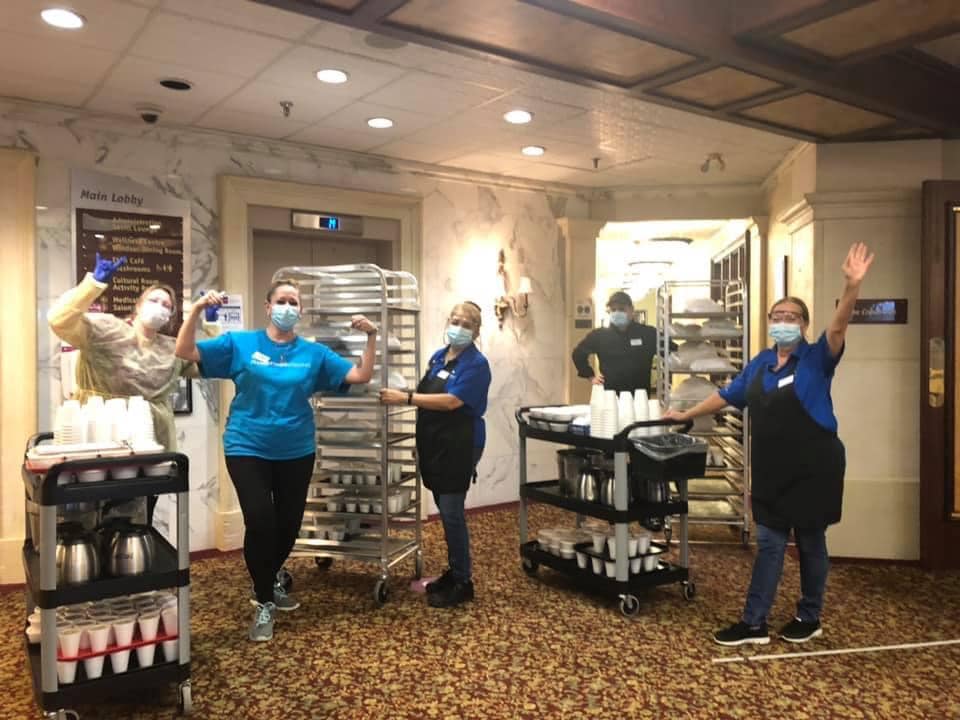
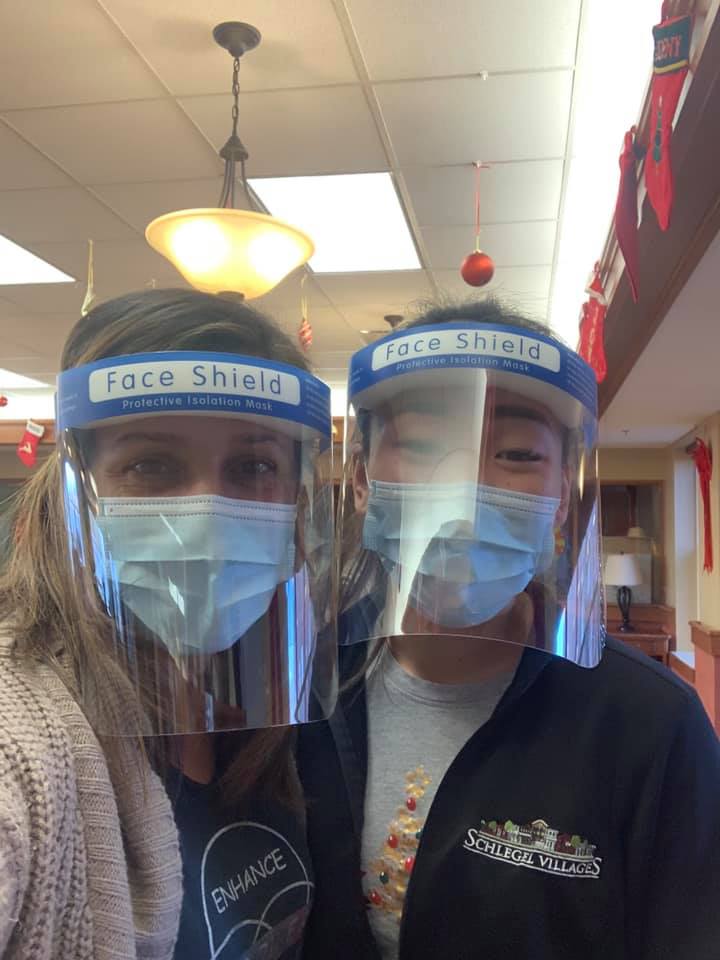
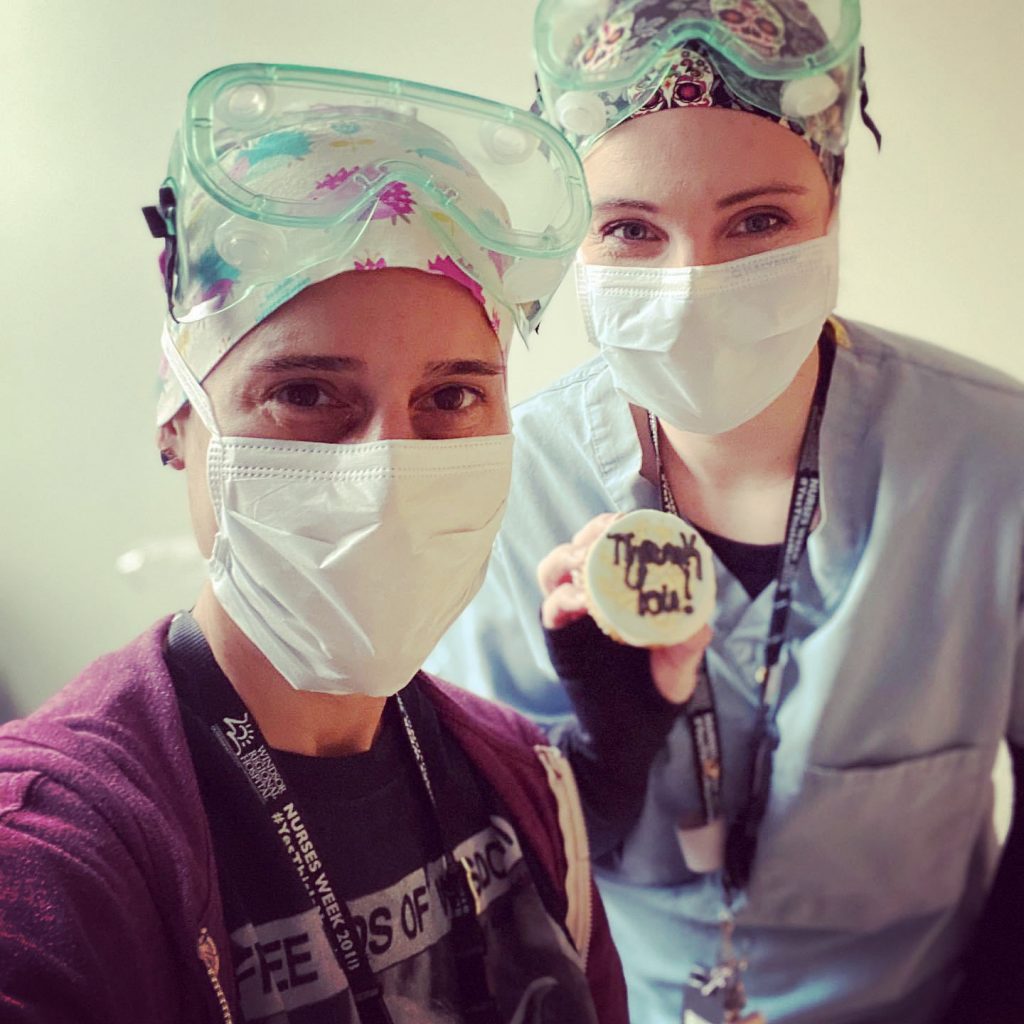

Add comment